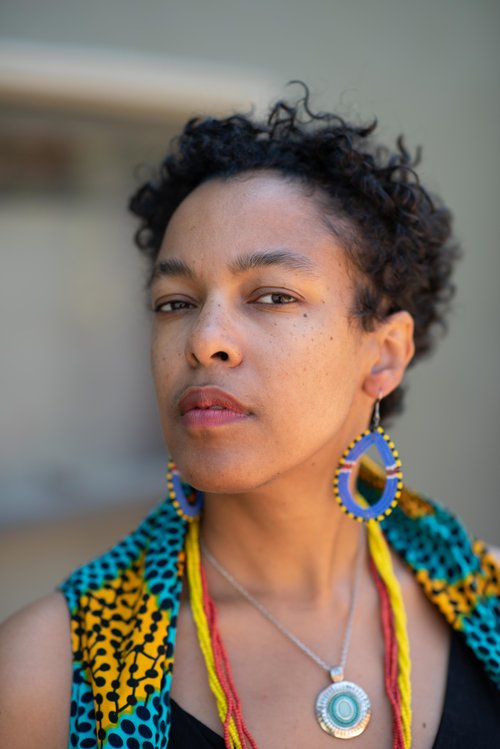Raina J. León, PhD is Black, Afro-Boricua, and from Philadelphia (Lenni Lenape ancestral lands). She is a mother, daughter, sister, madrina, comadre, partner, poet, writer, and teacher educator. She believes in collective action and community work, the profound power of holding space for the telling of our stories, and the liberatory practice of humanizing education. She seeks out communities of care and craft and is a member of the Carolina African American Writers Collective, Cave Canem, CantoMundo, Macondo, among other creative communities. She is the author of black god mother this body, Canticle of Idols, Boogeyman Dawn, sombra : (dis)locate, and the chapbooks,profeta without refuge and Areyto to Atabey: Essays on the Mother(ing) Self. She publishes across forms in visual art, poetry, nonfiction, fiction, and scholarly work. She has received fellowships and residencies with the Obsidian Foundation, Community of Writers, Montana Artists Refuge, Macdowell, Kimmel Harding Nelson Center for the Arts, Vermont Studio Center, the Tyrone Guthrie Center in Annamaghkerrig, Ireland and Ragdale, among others. She is a founding editor of The Acentos Review, an online quarterly, international journal devoted to the promotion and publication of Latinx arts. She recently retired early as a full professor of education at Saint Mary’s College of California, only the third Black person (all Black women) and the first Afro-Latina to achieve that rank there; she now holds professor emerita status, the first Black person to achieve the rank there and third Latinx person. She currently supports poets and writers at the Stonecoast MFA at the University of Southern Maine. She is additionally a digital archivist, emerging visual artist, writing coach, and curriculum developer.
Raina will provide detailed comments on your manuscript as well as a cover letter. After receiving these files, participants who submit chapbooks and full-length manuscripts may also book phone/video conferences with her at no additional charge.
Raina is accepting single poems, folios, chapbooks, and full-length collections for critique. The fees and parameters for each of these categories are as follows:
- Individual Poems, up to 2 pages in length, $25
- Folios, up to 7 pages in length, not to include more than 5 poems, $55
- Chapbooks, 16-40 pages in length, $275
- Full-length collections, 45-80 pages in length $425
All manuscripts should be formatted in 12-point font. The deadline to submit work for this consultation program is September 30. Raina will complete her work and respond to all participants by October 31.

 © Matteo Monchiero
© Matteo Monchiero 